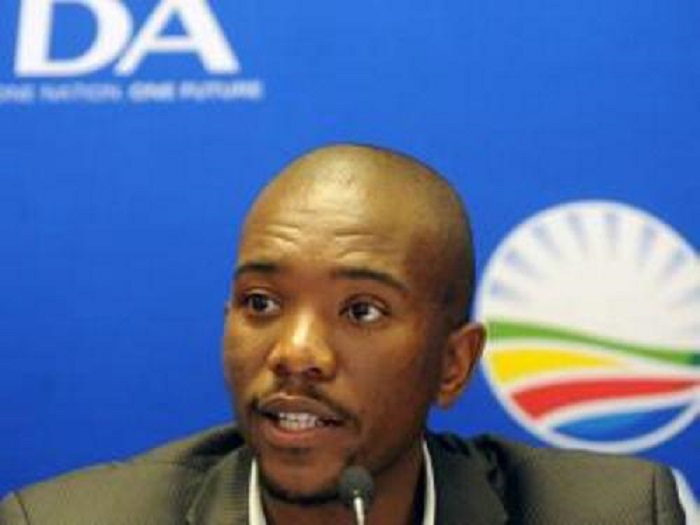Democratic Alliance leader Mmusi Maimane on Sunday announced the party would get involved in court action to ensure the public protector’s report on alleged ‘state capture’ is released.
“The DA has taken the decision to become an intervening party in the matter to be heard before the North Gauteng High Court,” he said.
“We will argue strongly in favour of the release of the report and that it be made public without delay.”
On November 1, an interdict by President Jacob Zuma and former, fleetingly-appointed finance minister Des van Rooyen will be heard in the High Court in Pretoria. The EFF, UDM and Cope have already announced they will oppose this.
Co-operative Governance Minister Van Rooyen brought the application for an interdict on Friday, citing not enough time to prepare responses to now former Public Protector Thuli Madonsela’s questions.
The public protector report might contain findings and recommendations relating to Zuma after the Catholic Church’s Dominican Order asked Madonsela to probe claims that the Gupta family had some ANC Cabinet members in their pocket, with Zuma’s knowledge.
In the interim the expected release of the report on Friday was put on hold. The report has since been handed over to Parliament for safe-keeping until Monday when it will be handed over to the new Public Protector Busisiwe Mkhwebane.
A defining moment
In a separate development, on Friday, Finance Minister Pravin Gordhan filed court papers detailing “suspicious” bank transactions by Gupta-owned companies totalling almost R7bn.
Gordhan filed an application for the court to declare that, as finance minister, he is in no way obligated to help the Guptas in their battle with South Africa’s largest banks, all of whom terminated their banking relationships with the Guptas and their companies earlier this year.
On Sunday Maimane said that the court action around the report’s release would be “a defining moment in protecting our Chapter Nine institutions”.
He said he believed the court bids by Van Rooyen and Zuma were a sign that the President had “something very serious to hide”.
Maimane also said his party would table a motion in parliament in support of the National Treasury and its “efforts to fight corruption and state capture”.
The DA head also weighed in on recent charges made by the National Prosecuting Authority (NPA) against Finance Minister, Pravin Gordhan, and Economic Freedom Fighters’s leader, Julius Malema.
“While it may be that both these individuals have a case to answer before our courts, one cannot ignore the suspicious timing of the charges.”
DA Chief Whip, John Steenhuisen, had requested a debate of public importance on these matters around the NPA’s actions.
NPA head Shaun Shaun Abrahams announced on Tuesday that Gordhan, former Sars deputy commissioner Ivan Pillay and former commissioner Oupa Magashula would be charged for fraud in relation to an early retirement payout granted to Pillay in 2010, and the extension of his contract.
Marching against corruption
Subsequently, lawyers for Gordhan said that he would not make representations to Abrahams as Gordhan “does not have any confidence in the NDPP’s ability or willingness to afford him a fair hearing”.
Maimane called on South Africans to march against corruption on November 2 when Gordhan is expected in the High Court in Pretoria.
Commenting on the ongoing Fees Must Fall protests at various universities across the country, Maimane said the higher education sector was on the brink of collapse.
“The destruction and violence which we have witnessed in the last few weeks are the acts of thugs and criminals, not of young aspiring leaders.”
He said all universities should be re-opened on Monday.
Students on campuses around the country began protesting on September 19 after Higher Education and Training Minister Blade Nzimande announced that tertiary institutions could decide their own fee increases for 2017. They had to be capped at 8% and poor students and those from households that make less than R600 000 a year would not be affected by the increase.
But students have raised other demands apart from free education, including decolonised tertiary institutions and stopping the outsourcing of university workers.
[Source: News24]





 WhatsApp us
WhatsApp us 

